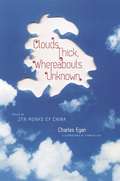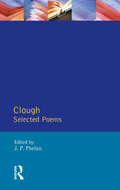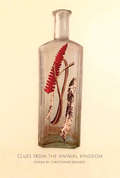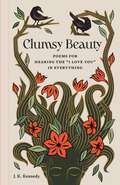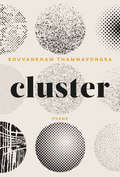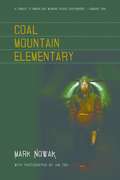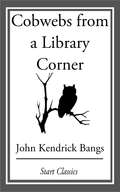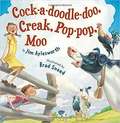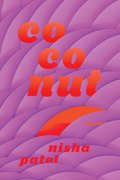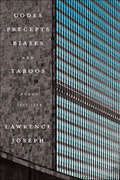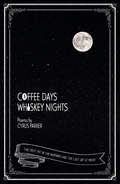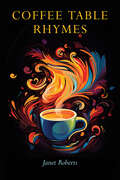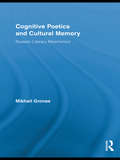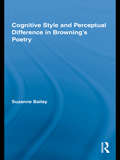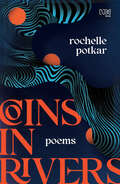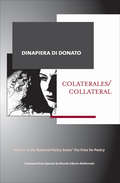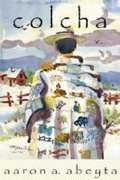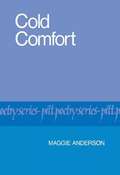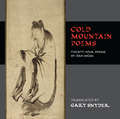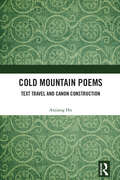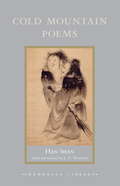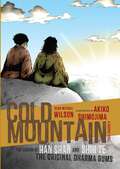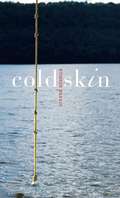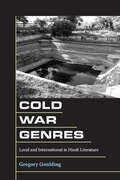- Table View
- List View
Clouds Thick, Whereabouts Unknown: Poems by Zen Monks of China
by Charles EganCompiled by a leading scholar of Chinese poetry, Clouds Thick, Whereabouts Unknown is the first collection of Chan (Zen) poems to be situated within Chan thought and practice. Combined with exquisite paintings by Charles Chu, the anthology compellingly captures the ideological and literary nuances of works that were composed, paradoxically, to "say more by saying less," and creates an unparalleled experience for readers of all backgrounds. Clouds Thick, Whereabouts Unknown includes verse composed by monk-poets of the eighth to the seventeenth centuries. Their style ranges from the direct vernacular to the evocative and imagistic. Egan's faithful and elegant translations of poems by Han Shan, Guanxiu, and Qiji, among many others, do justice to their perceptions and insights, and his detailed notes and analyses unravel centuries of Chan metaphor and allusion. In these gems, monk-poets join mainstream ideas on poetic function to religious reflection and proselytizing, carving out a distinct genre that came to influence generations of poets, critics, and writers. The simplicity of Chan poetry belies its complex ideology and sophisticated language, elements Egan vividly explicates in his religious and literary critique. His interpretive strategies enable a richer understanding of Mahayana Buddhism, Chan philosophy, and the principles of Chinese poetry.
Clouds Thick, Whereabouts Unknown: Poems by Zen Monks of China (Translations from the Asian Classics)
by Charles ChuCompiled by a leading scholar of Chinese poetry, Clouds Thick, Whereabouts Unknown is the first collection of Chan (Zen) poems to be situated within Chan thought and practice. Combined with exquisite paintings by Charles Chu, the anthology compellingly captures the ideological and literary nuances of works that were composed, paradoxically, to "say more by saying less," and creates an unparalleled experience for readers of all backgrounds.Clouds Thick, Whereabouts Unknown includes verse composed by monk-poets of the eighth to the seventeenth centuries. Their style ranges from the direct vernacular to the evocative and imagistic. Egan's faithful and elegant translations of poems by Han Shan, Guanxiu, and Qiji, among many others, do justice to their perceptions and insights, and his detailed notes and analyses unravel centuries of Chan metaphor and allusion. In these gems, monk-poets join mainstream ideas on poetic function to religious reflection and proselytizing, carving out a distinct genre that came to influence generations of poets, critics, and writers. The simplicity of Chan poetry belies its complex ideology and sophisticated language, elements Egan vividly explicates in his religious and literary critique. His interpretive strategies enable a richer understanding of Mahayana Buddhism, Chan philosophy, and the principles of Chinese poetry.
Clough: Selected Poems (Longman Annotated Texts)
by Arthur Hugh Clough Joseph PhelanThis volume represents a selection of some of the best poetry by Arthur Hugh Clough (1810-61). Detailed annotation provides the modern reader with the intellectual, cultural and historical information necessary for a full appreciation of the poet's work. The poems selected span Clough's entire career, with the main focus on his two most important poems, Amours de Voyage and Dipsychus and the Spirit. These poems are discussed at length in the critical introduction and are prefaced by substantial headnotes elucidating their historical background and literary antecedents. Providing a wealth of information about the poet and the context of his work, this volume represents a substantial contribution to the subject in its own right, as well as being essential reading for all students of nineteenth-century literature.
Clues from the Animal Kingdom (American Poets Continuum #167)
by Christopher KennedyIn his fifth collection of poems, Christopher Kennedy sifts through the detritus of the past to uncover the memories, images, and symbols that shape an individual’s consciousness. Looking to animals and their instincts for inspiration, drawing shape from the poet’s Irish Catholic working-class roots, these prose poems transcend grief and depression by seeking humanity’s place in the natural world.
Clumsy Beauty: Poems for Hearing the "I Love You" in Everything
by J. K. KennedyFilled with warmth, wit, and a dash of irreverence, Clumsy Beauty is a celebration of life in all its messiness. This exquisitely illustrated collection of bite-size poems from J. K. Kennedy invites you to hear the "I love you" in every little moment.An enchantingly illustrated collection of poems designed to inspire and empower, Clumsy Beauty invites you to hear the "I love you" in every little moment. In an age of constant pressure to meet unattainable standards of beauty and perfection, Clumsy Beauty proclaims the joy of imperfection. Embrace your quirks, your stumbles, and your unique path. J. K. Kennedy&’s poetry reveals vulnerability and showcases her personal voice, yet remains refreshingly resonant. With each turn of the page, you'll find inspiration, solace, and a renewed sense of self-acceptance. Whether you're seeking motivation during challenging times or simply looking for a reminder that you are enough just as you are, Clumsy Beauty is here to lift you up. The best part about a mistake is deciding if it will be an anchor or a sail BITE-SIZE POEMS: Each of J. K.&’s poems is thought-provoking, yet brief enough to quickly read before bed, during breakfast, or on the train. Every delectable morsel will leave you hankering for the next. Savor each bite or devour them all at once. EMPOWERING: Clumsy Beauty is a celebration of life in all its messiness. J. K. Kennedy illuminates the beauty in mistakes, imperfections, and unfiltered reality. RESONANT: Themes include navigating uncertainty, embracing your unique self, and living life on your own terms. THOUGHTFUL GIFT: Beautifully designed and with illustrations throughout, Clumsy Beauty is an inspirational gift for anyone looking for a poetic dose of hope and encouragement.
Cluster
by Souvankham ThammavongsaWith unsettling beauty and a quiet magic, award-winning poet Souvankham Thammavongsa's Cluster will awe and amaze.Acclaimed poet Souvankham Thammavongsa returns with her fourth collection, a book about meaning. Meaning can sometimes blow up, crack something we had not seen, or darken what had been seen so clear to us. Meaning can happen with so little and go on to take so much from us. Meaning can sometimes take a long time to arrive, years even, if ever. And it's possible meaning does not mean, and that in itself could be meaningful. Whatever happens to meaning, it is always there. It means even when you don't want it. Every poem in this book looks at meaning and the ways in which it arrives, if at all.
Coal Mountain Elementary
by Mark NowakA singular, genre-defying treatise from one of America's most innovative political poets, Coal Mountain Elementary remixes verbatim testimony from the surviving Sago, West Virginia miners and rescue teams, the American Coal Foundation's curriculum for schoolchildren, newspaper accounts of mining disasters in China, and full-color photographs of Chinese miners by renowned photojournalist Ian Teh. A poet and labor activist heralded by Adrienne Rich for "regenerating the rich tradition of working-class literature," Mark Nowak regularly leads transnational poetry workshops between American and international trade unions. The author of Revenants and Shut Up Shut Down, he is also a frequent contributor to the Poetry Foundation's Harriet blog.
Cobwebs from a Library Corner
by John Kendrick BangsThese verses of Mr. Bangs's have appeared from time to time in the various Harper Periodicals, and elsewhere.
Cock-a-doodle-doo Creak Pop-pop Moo
by Jim AylesworthBreakfast ham pop-pops, cows moo as they're being milked, girls feed clucking hens, and boys split wood--whack! When chores are done, rockers squeak, and kids read and play games while Grandma's knitting needles click and the clock ticks. Jim Aylesworth uses rhythms that are reminiscent of reel music, rhyme, and onomatopoeia to write about a day in the life of a farm family. To illustrate this joyful text, Brad Sneed draws inspiration from the American regionalism art movement and creates figures that are earthy, yet elegant and heroic. This book is a celebration of work, play, family, food and farm life!
Coconut (Crow Said Poetry)
by Nisha PatelIn her debut collection, Canadian National Slam Champion Nisha Patel commands her formidable insight and youthful, engaged voice to relay experiences of racism, sexuality, empowerment, grief, and love. These are vitally political, feminist poems for young women of colour, with bold portrayals of confession, hurt, and healing.Coconut rises fiercely like the sun. These poems bestow light and warmth and the ability to witness the world, but they ask for more than basking; they ask readers to grow and warn that they can be burnt. Above all, Nisha Patel’s work questions and challenges propriety and what it means to be a good woman, second-generation immigrant, daughter, consumer, and lover.
Codes, Precepts, Biases, and Taboos: Poems, 1973–1993
by Lawrence JosephThe first three books by the author of Into ItCodes, Precepts, Biases, and Taboos brings together the poems from Lawrence Joseph's first three books of poetry: Shouting at No One, Curriculum Vitae, and Before Our Eyes. Now in one volume, the poems from these three books can be seen as the work of one of American poetry's most original and challenging poets.
Coffee Days, Whiskey Nights: First sip in the morning and last sip at night
by Cyrus ParkerCoffee Days, Whiskey Nights is a collection of poetry, prose, and aphorisms that juxtaposes the hopefulness a brand new day can bring with the lingering thoughts that keep us up into the late-night hours. A lot can happen between the first sip of coffee and the last taste of whiskey, and this book takes a look at the way a single day can change our outlook on everything from relationships with others, to our relationships with ourselves, and everything in between. Ultimately, it illustrates that no matter how hopeless we may feel at the end of a day, a new one is only a few hours away.
Coffee Table Rhymes
by Janet Roberts“My sister cleans her bedroom In twenty seconds flat. She sweeps the dirt into a pile Then underneath the mat.” A selection of comic verse on such subjects as fraught relationships, untrustworthy professionals, quirky pets and even quirkier family members. Nothing too dark or serious here, just a set of cleverly written, instantly quotable epigrams, along with a handful of longer poems that combine humour with insight. Truly, the perfect book to leave around for guests to pick up and flip through – on the coffee table, of course!
Cognitive Poetics and Cultural Memory: Russian Literary Mnemonics (Routledge Research In Cultural And Media Studies #28)
by Mikhail GronasIn this volume, Gronas addresses the full range of psychological, social, and historical issues that bear on the mnemonic existence of modern literary works, particularly Russian literature. He focuses on the mnemonic processes involved in literary creativity, and the question of how our memories of past reading experiences shape the ways in which we react to literary works. The book also examines the concrete mnemonic qualities of poetry, as well as the social uses to which poetry memorization has historically been put to use. This study will appeal to scholars of cognitive poetics, Russian literature, and cultural studies.
Cognitive Style and Perceptual Difference in Browning’s Poetry (Studies In Major Literary Authors Ser.)
by Suzanne BaileyCurrent work on speech pragmatics and visual thinking calls for a radical reassessment of the problem of obscurity or difficulty in Robert Browning’s work. In this innovative study, Bailey reinterprets Browning's life and work in the context of contemporary theories of language and attention, drawn from the cognitive sciences. Specifically, new readings of under-examined historical sources show the extent to which Browning’s cognitive and perceptual worlds differed from the norm, aligning him with Victorians like Sir Francis Galton or fellow-artist William Wetmore Story. Exploring how perceptual biases are transformed in the language of the poems, Bailey demonstrates how the cognitive sciences can ground a new biographical practice, drawing attention to such matters as the creative process and the ethics of understanding individuals who think differently. In doing so, she re-energizes debates about this unusual Victorian poet, his later works, and the nature of literary style.
Coins in Rivers: Poems
by Rochelle PotkarIf I were a country and you my journalist I would have shot you down a street and left you to bleed.Fierce and unflinching, Rochelle Potkar's poetry springs from the deeply personal and ripples out to the world, capturing lovers' whispers and reverberations of explosions with equal ease. Vividly depicting love, grief, anger, and defiance, these poems glimmer like coins beneath the water surface, tethered with the weight of wishes clinging to them. As sensuous as it is articulate, Coins in Rivers is a deep meditation on womanhood, motherhood, and citizenship.
Colaterales/Collateral: Colaterales
by Dinapiera Di DonatoA winner of the prestigious poetry award named for the Nobel laureate Octavio Paz—in a special bilingual edition featuring English and Spanish translations. These poems were written during days spent clearing river debris while the author was living along the Hudson River in Manhattan. They speak of these wanderings in the imaginary landscape of a nomadic subject who erases and rewrites. This volume by Venezuelan poet Dinapiera di Donato earned the Paz Prize for Poetry, presented by the National Poetry Series and The Center at Miami Dade College.
Colcha
by Aaron A. AbeytaPoems steeped in the culture and landscape of the poet's home in southern Colorado -- agriculture and small towns and the mountains and plains and the music of the Spanish slang spoken by family and neighbors.
Cold Comfort
by Maggie AndersonPoems by Anderson about country life, photographs by Walker Evans, vegetables, etc.
Cold Mountain Poems
by Gary SnyderIn 1953, Gary Snyder returned to the Bay Area and, at age 23, enrolled in graduate school at the University of California, Berkeley, to study Asian languages and culture. He intensified his study of Chinese and Japanese, and taking up the challenge of one of his professors, Chen Shih-hsiang, he began to work on translating a largely unknown poet by the name of Han Shan, a writer with whom the professor thought Snyder might feel a special affinity. The results were magical. As Patrick Murphy noted, "These poems are something more than translations precisely because Snyder renders them as a melding of Han Shan's Chinese Ch'an Buddhist mountain spirit trickster mentality and Snyder's own mountain wilderness meditation and labor activities." <P> The suite of 24 poems was published in the 1958 issue of The Evergreen Review, and the career of one of America's greatest poets was launched.In 1972, Press-22 issued a beautiful edition of these poems written out by hand in italic by Michael McPherson. We are doing a new augments edition based on the old, with a new design, a preface by Lu Ch'iu-yin, and an afterword by Mr. Snyder where he discusses how he came to this work and what it meant to his development as a writer and Buddhist.<P> On May 11, 2012, for the Stronach Memorial Lecture at The University of California, more than fifty years after his days there as a student, Snyder offered a public lecture reflecting on Chinese poetry, Han Shan, and his continuing work as a poet and translator. This remarkable occasion was recorded and we are including a CD of it in our edition, making this the most definitive edition of Cold Mountain Poems ever published.<P> Advisory: Bookshare has learned that this book offers only partial accessibility. We have kept it in the collection because it is useful for some of our members. To explore further access options with us, please contact us through the Book Quality link on the right sidebar. Benetech is actively working on projects to improve accessibility issues such as these.
Cold Mountain Poems: Text Travel and Canon Construction
by Anjiang HuThis book unveils the legendary life and the mystic poems of the iconic Chinese Tang poet Han-shan (known by his pen name “Cold Mountain”) and investigates the dissemination and reception of the Cold Mountain Poems (CMPs) attributed to him. Han-shan and the CMPs are amongst the most legendary literary landscapes and cultural memories in the history of world scholarly exchange. The maniac poet recluse hidden in the Cold Mountains, the delicate poetic realms of Confucianism, Buddhism, Zen and Taoism contained in the Cold Mountain Poems, and the incredible pervasiveness of its text travel and canon construction worldwide, as well as the profound impact of CMPs on comparative literature, world literature and Chinese studies, provide the perfect lens to learn about Chinese language, literature, culture and society. This book is thus intended to investigate CMPs in a coherent global context. Considering the vertical studies of the Chinese literature polysystem, it highlights the horizontal influence of CMPs, literarily or non-literarily. Furthermore, it addresses the making and developing of the Han-shan phenomenon and its implications for translation studies, travel writing, canon construction and literary historiography. This book is for scholars, researchers and students in literary history and East Asian Studies focusing on Chinese literature and culture and those interested in the history of poetry in general.
Cold Mountain Poems: Zen Poems of Han Shan, Shih Te, and Wang Fan-chih
by J. P. Seaton Han ShanThe incomparable poetry of Han Shan (Cold Mountain) and his sidekick Shih Te, the rebel poets who became icons of Chinese poetry and Zen, has long captured the imagination of poetry lovers and Zen aficionados. Popularized in the West by Beat Generation writers Gary Snyder and Jack Kerouac, these legendary T'ang era (618-907) figures are portrayed as the laughing, ragged pair who left their poetry on stones, trees, farmhouses, and the walls of the monasteries they visited. Their poetry expressed in the simplest verse but in a completely new tone, the voice of ordinary people. Here premier translator J. P. Seaton takes a fresh look at these captivating poets, along with Wang Fan-chih, another "outsider" poet who lived a couple centuries later and who captured the poverty and gritty day-to-day reality of the common people of his time. Seaton's comprehensive introduction and notes throughout give a fascinating context to this vibrant collection.
Cold Mountain: The Legend of Han Shan and Shih Te, the Original Dharma Bums
by Sean Michael WilsonHere is a graphic novel portrait of the wild antics and legendary poetry of two of China’s greatest poets. Han Shan (known as "Cold Mountain") and Shih Te lived during the Tang dynasty (618–906 C.E.) and were critics of authority (both secular and religious) and champions of social justice. They left their poetry on tree trunks and rocks, and they were also reportedly monastics, drunks, cave dwellers, immortals, and many other unconventional and wondrous things. There is much delightful uncertainty about this "Laughing Pair"—including whether or not they actually even existed. What is known is that the poetry attributed to them was hugely influential in both China and Japan, and to the Beat writers in the United States during the 1950s and ’60s.Acclaimed manga creator Sean Michael Wilson, along with illustrator Akiko Shimojima and expert translator J. P. Seaton, brings these renegade poets to life, revealing their humor and wackiness and also their penetrating insights into the human condition.
Cold Skin
by Steven HerrickIn a rural Australian coal mining town shortly after World War II, teenaged Eddie makes a startling discovery when he investigates the murder of a local high school girl.
Cold War Genres: Local and International in Hindi Literature
by Gregory GouldingCold War Genres explores post-independence Hindi literature, framing it within the sociopolitical backdrop of Nehruvian India during the early Cold War. The book underscores the pivotal role of Hindi's claims to be a national language following independence, which fostered a unique moment of literary innovation. Central to its narrative is the work of Gajanan Madhav Muktibodh, a pivotal figure in modern South Asian literature. Using Muktibodh's poetry, criticism, and fiction as a primary example, the book shows how literary form shapes a response to the internal contradictions of 1950s India, one that must be read in light of both the antinomies of Hindi literature and North India as well as the aesthetic debates and emerging ideas of global space during this time. Cold War Genres therefore functions as a lens to evaluate questions of genre and form shared by a range of literary cultures in the mid-twentieth-century decolonizing world. This book features extensive translations from Muktibodh's poetry and prose, including full translations of two poems "Brahmarākṣas" (The Brahman Demon) and "Aṃdhere meṃ" (In the Dark).
